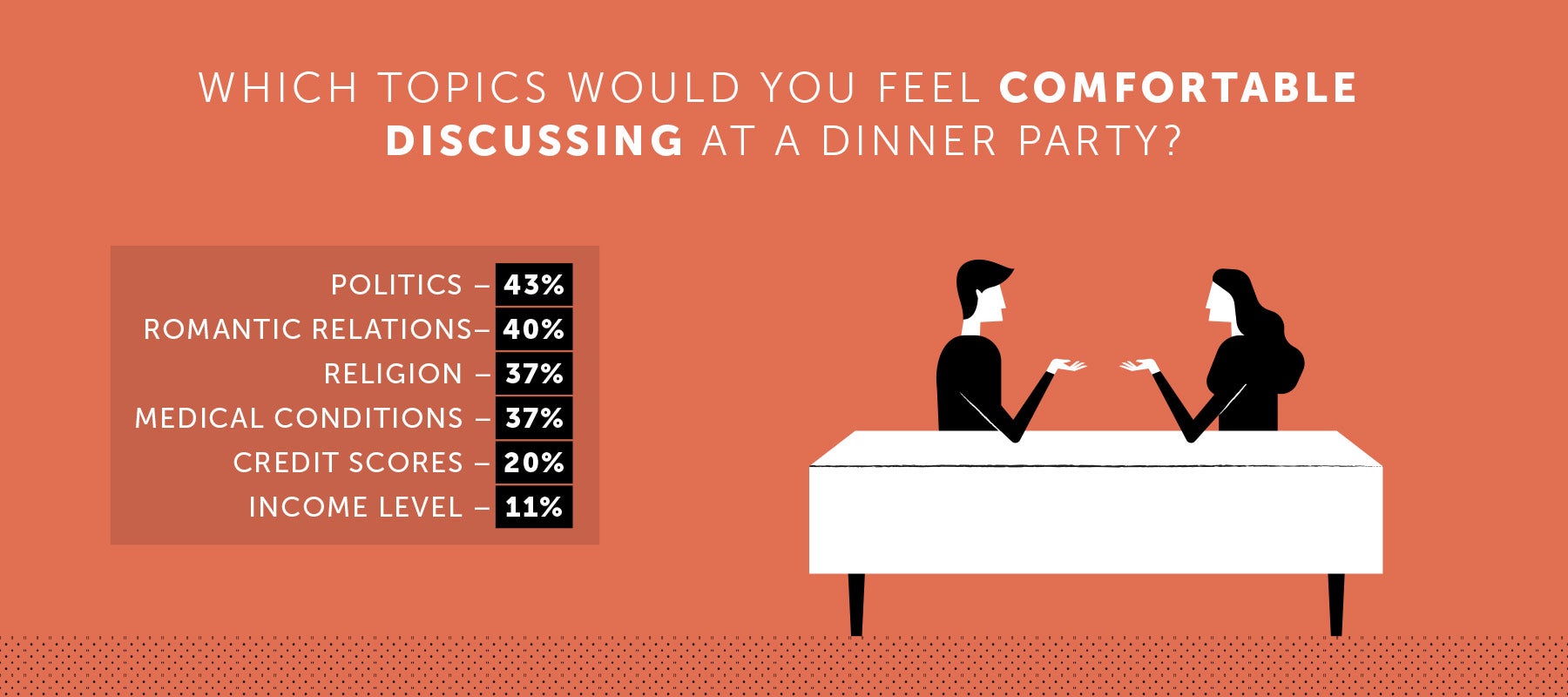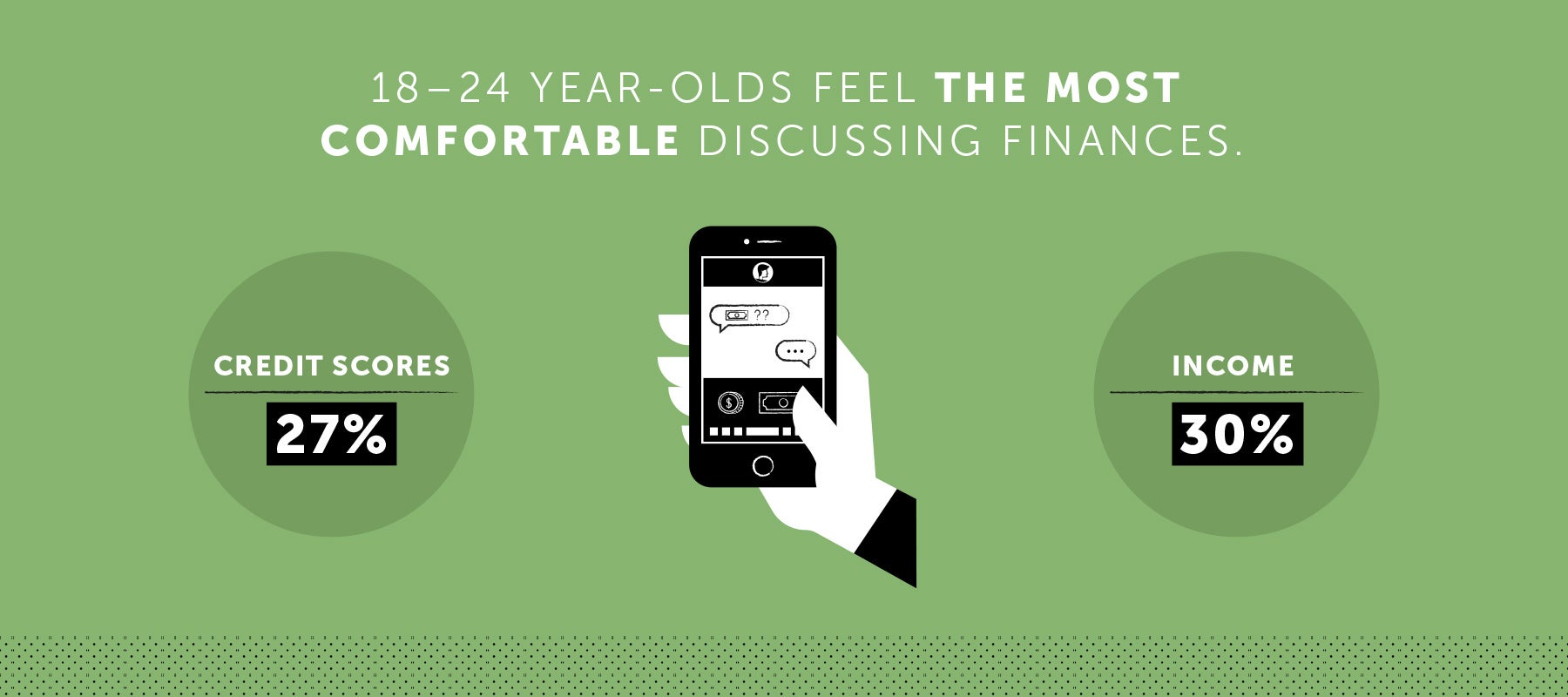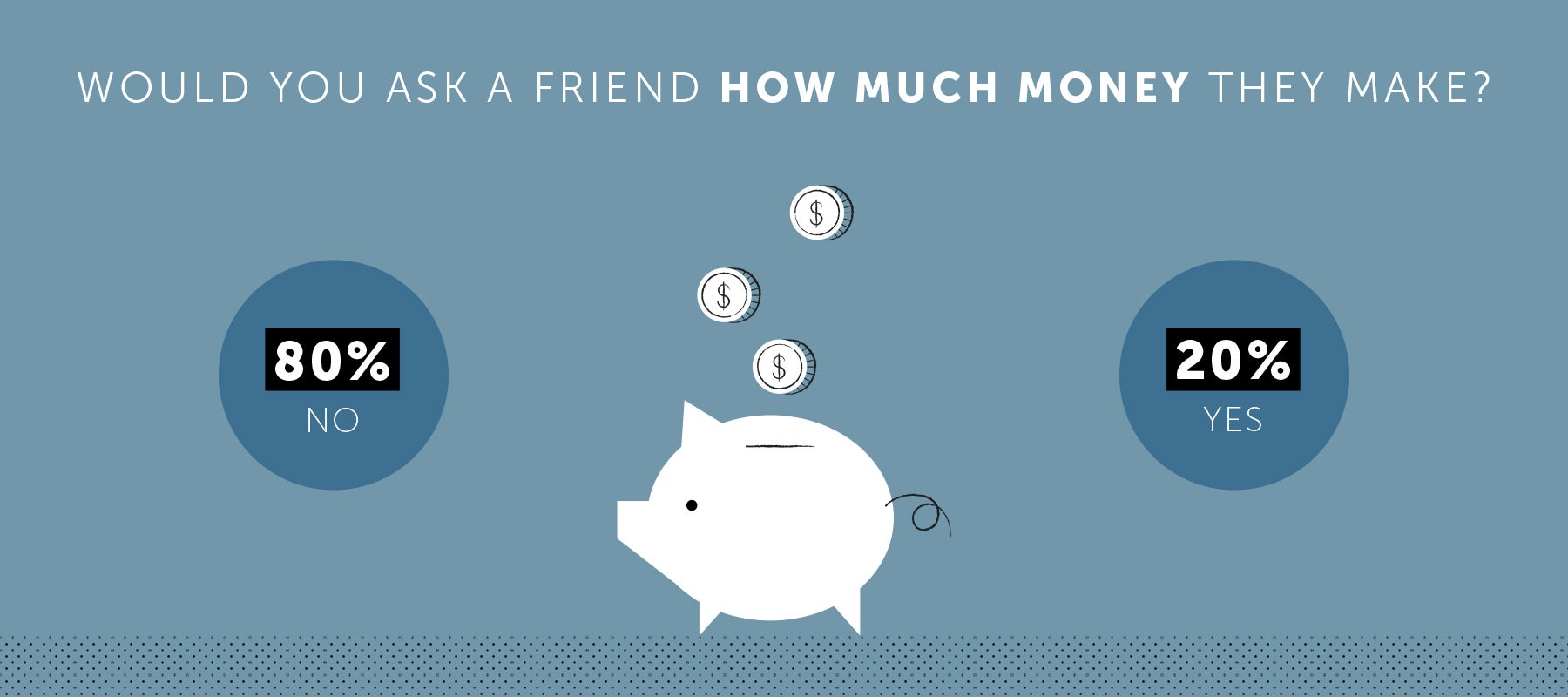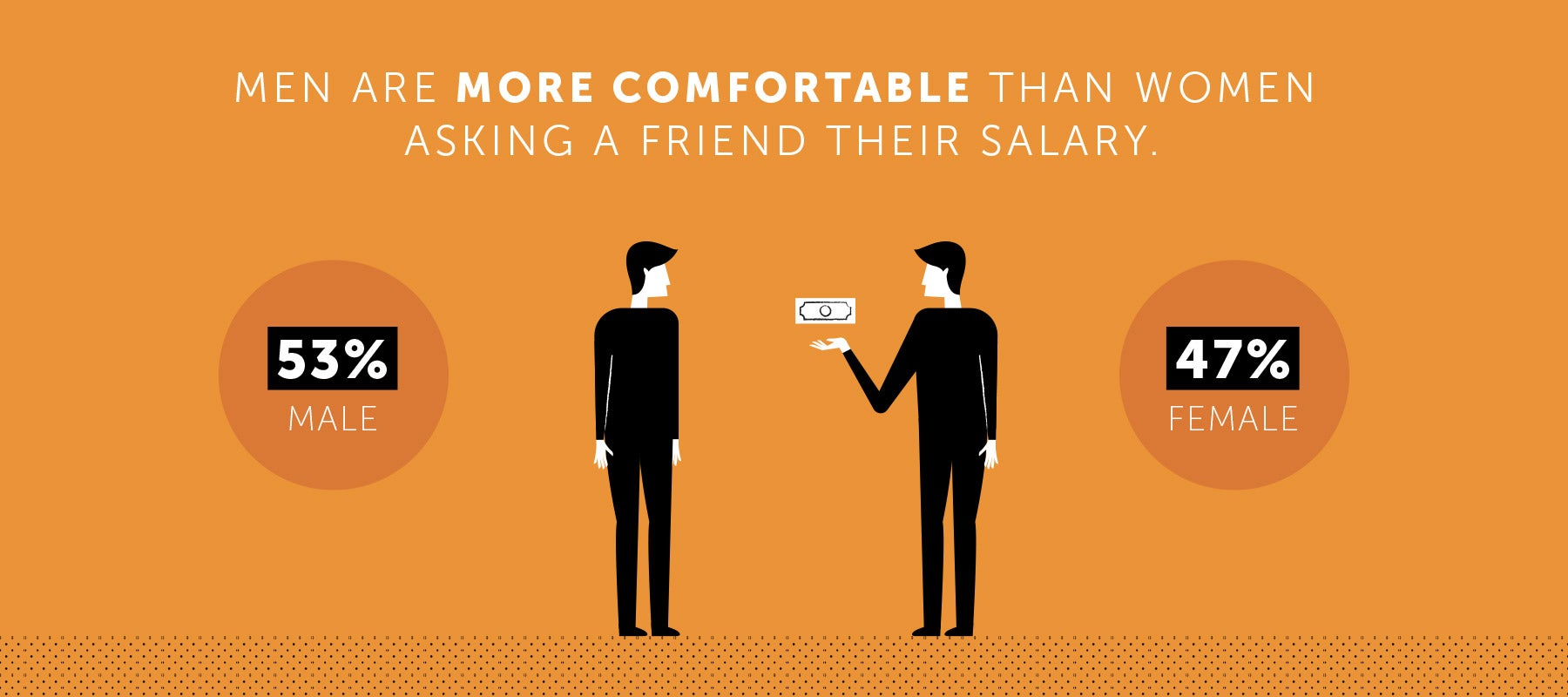
Discussing finances with friends and family can be difficult for many and often requires some sophistication to avoid coming off as snobbish. Not only are finances difficult to talk about, they are also considered an area of conversational taboo in America. With younger generations reshaping financial etiquette rules in dating, friendship and marriage we set out to determine if Americans are opening up about how they talk about money. We polled over 3,000 Americans asking them what topics they felt comfortable discussing at a dinner party and if they are comfortable asking a friend’s income.
Although 76 percent of Americans are not comfortable asking their friend how much money they make, younger Americans are more open than older Americans. Some other findings included:
- 25 percent of Americans age 18-24 felt comfortable asking about their friends’ income, whereas only 9 percent of Americans over 65 felt comfortable.
- Younger Americans are more open about discussing credit scores and income levels in a dinner party setting than any other generation.
Americans would rather talk about politics or religion than money
Dinner party etiquette is relatively formal in America, with 65 percent of Americans not willing to open up about sensitive subjects. For the 35 percent of Americans who are comfortable discussing sensitive subjects at a dinner party, there is a diverse mix between which topics Americans find appropriate.

Overall more Americans felt comfortable discussing politics, romantic relations, religion and medical conditions than they are discussing finances at a dinner party. Only 20 percent of Americans feel comfortable discussing credit scores and 11 percent feel comfortable discussing income level at a dinner party. Although finance topics are the least popular topics to cover, our survey showed a surprising trend among young Americans.

27 percent of Americans age 18–24 feel comfortable talking about income and 30 percent are open to discussing credit scores at a dinner party.
One in five people would ask their friend their salary
With income set as the number one taboo topic Americans are not comfortable discussing at a dinner party, we set out to discover if Americans are comfortable talking about income in a more private setting.

We asked 1500 Americans if they would ask their friend how much money they make. Our survey revealed that 80 percent of Americans would not ask their friend how much money they make, and 20 percent of Americans would.
Our study found that on average older Americans are less comfortable asking the income of their friend than younger Americans. 27 percent of 35-44 year-olds are comfortable asking the income of their friend whereas only 9 percent of Americans over the age of 65 are comfortable asking their friends about income.
Men tend to be more comfortable than women when it came to asking their friends salary. Studies show that being open about income and salary helps during negotiations and provides leverage and transparency.

Though the topic is still considered taboo, and a whopping 80 percent of Americans still aren’t comfortable asking a friend their salary, discussion of income can help educate the populous on best financial practices. With younger Americans proving to be more open to these discussions, we can expect these generations to improve their financial literacy and make smarter decisions about their assets the future.
Unforeseen financial emergencies can happen to anyone. But you don’t have to let it ruin your credit indefinitely. Lexington Law leverages consumer laws to ensure the items on your credit report are fair, accurate, and substantiated.
You can also carry on the conversation on our social media platforms. Like and follow us on Facebook and leave us a tweet on Twitter.